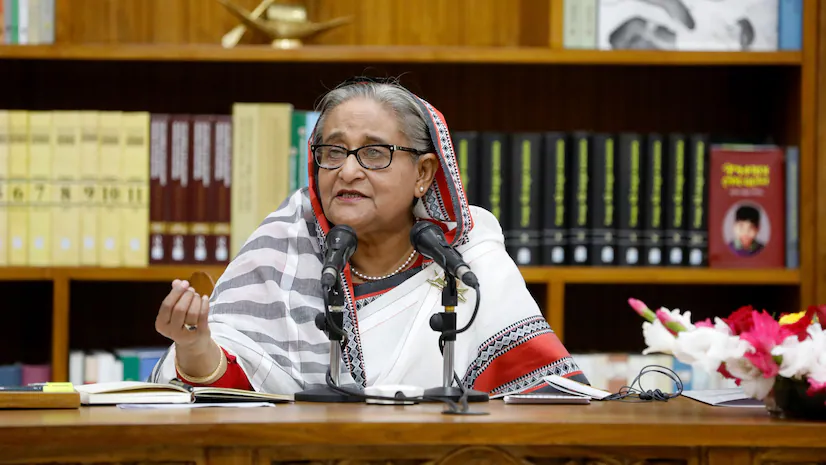A Bangladeshi court has officially issued an arrest warrant for Sheikh Hasina, who fled to India in August following her ousting amidst widespread protests. The warrant stems from allegations against Hasina by Bangladesh’s International Criminal Tribunal (ICT), accusing her of involvement in “crimes against humanity” that occurred during the protests, resulting in the deaths of hundreds of individuals.
Sheikh Hasina, who governed Bangladesh for over two decades, has been characterized by many as an autocrat due to her government’s harsh crackdown on dissent and opposition. Along with Hasina, arrest warrants have also been issued for 45 others, including former government ministers who fled the country. Mohammad Tajul Islam, the ICT’s chief prosecutor, confirmed that the court has ordered Hasina’s arrest and her appearance in court on November 18.
According to Bangladesh’s interim health ministry, the summer of protests was marked by intense violence, leading to the death of more than 1,000 people. These demonstrations were sparked by student-led protests against government job quotas, escalating into mass protests that have now been described as the bloodiest in Bangladesh’s history since its independence in 1971.
At the age of 77, Hasina has not been publicly seen since her flight from Bangladesh. Reports indicate that her last known location was at a military airbase near New Delhi, India. Initially, it was believed that she would stay in India only temporarily, but her attempts to seek asylum in other countries have reportedly been unsuccessful. Her ongoing presence in India poses a diplomatic challenge for New Delhi, especially as they navigate relationships with the new interim government in Dhaka.
The new interim government has revoked Sheikh Hasina’s diplomatic passport, and the two nations share a bilateral extradition treaty that could facilitate her return to Bangladesh for a criminal trial. However, a clause within this treaty states that extradition may be refused if the offences are deemed to have a “political character,” complicating the situation further.
Sheikh Hasina’s administration established the ICT in 2010 to investigate war crimes from the 1971 war with Pakistan, a conflict that ultimately led to Bangladesh’s independence. While the tribunal was initially created with noble intentions, it has faced criticism from the United Nations and various human rights groups regarding procedural shortcomings, leading many to view it as a tool for Hasina to eliminate political rivals.
The interim government has reconstituted the ICT, which began its proceedings on Thursday. Critics have expressed concerns about the tribunal’s credibility, noting a lack of judges with experience in international law. Several ongoing cases accuse Hasina of orchestrating the “mass murder” of protesters during the recent turmoil.
In response to the arrest warrant, Hasina’s son, Sajeeb Wazed, has stated that his mother is prepared to face trial, asserting, “My mother has done nothing wrong,” in an interview with Reuters last month. As this situation develops, it remains to be seen how international diplomacy will unfold, particularly concerning the complicated relationship between India and Bangladesh in light of these events.





